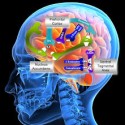5 Benefits of Dual Diagnosis Treatment Centers
Primarily, the goal of a dual diagnosis treatment center is to effectively treat co-existing physical or mental health conditions of an addict along with their substance abuse. By treating all conditions in continuum and integrating the treatment services, many benefits can be received in dual diagnosis treatment centers that may be limited by other providers.
1) Simultaneous Treatment of Substance Abuse and Mental Illness
These two things go hand in hand. Some people have underlying psychological issues that make them more susceptible to substance abuse and many substance abusers begin abusing substances to alleviate unwanted emotional problems such as stress, anxiety, or depression. Mental health is almost always affected by psychoactive substances which can lead to serious psychological distress and treating one condition without the other is inadequate, often resulting in relapses or preventable deaths from suicides.
According to an August 2014 data report by the Substance Abuse and Mental Health Services Administration, “Among adults aged 18 years or older, the death rate increased with increasing age overall, and the age-adjusted death rate was more than twice as high among those with serious psychological distress (SPD) than among those without SPD.”
2.) Simultaneous Treatment of Substance Abuse and Physical Illness
Prolonged addiction often leads to physical impairments which many abusers will disregard until brought to the forefront by an emergency medical situation, overdose, or serious disability. Physical illnesses can result in increased risk of substance abuse as well as psychological distress and requires effective treatments to coincide with substance abuse and mental health services to sustain long term recovery benefits.
3.) Overlapping Treatments for Physical, Psychological, and Substance Abuse

Dual diagnosis treatment ensures that your substance use disorder and mental health are each given proper attention.
Dual diagnosis treatment centers devote attention to the unique aspects of the person and the improvements of physical and psychological health while treating substance abuse at the same time. By integrating all of the services of psychiatrists, psychologists, medical, and professional staff, treatment is more comprehensive and can be adjusted when necessary to obtain the maximum overall results.
4.) Relapse Prevention
Relapse prevention is a common element in treatment, but, some centers may only provide partial treatments or sequential treatments which may be less effective in preventing relapse because any one condition can be a major contributor to the other.
Dual diagnosis treatment addresses all of the aspects that an individual needs to remain abstinent long term by helping them to get past the restraints of their mental or physical health and their addiction.
5.) Continued Care
A big part of dual diagnosis treatment may involve extended treatment services of medical or psychiatric care, medication assistance, and therapies that continue to provide stability for the person long after leaving formal treatment.

